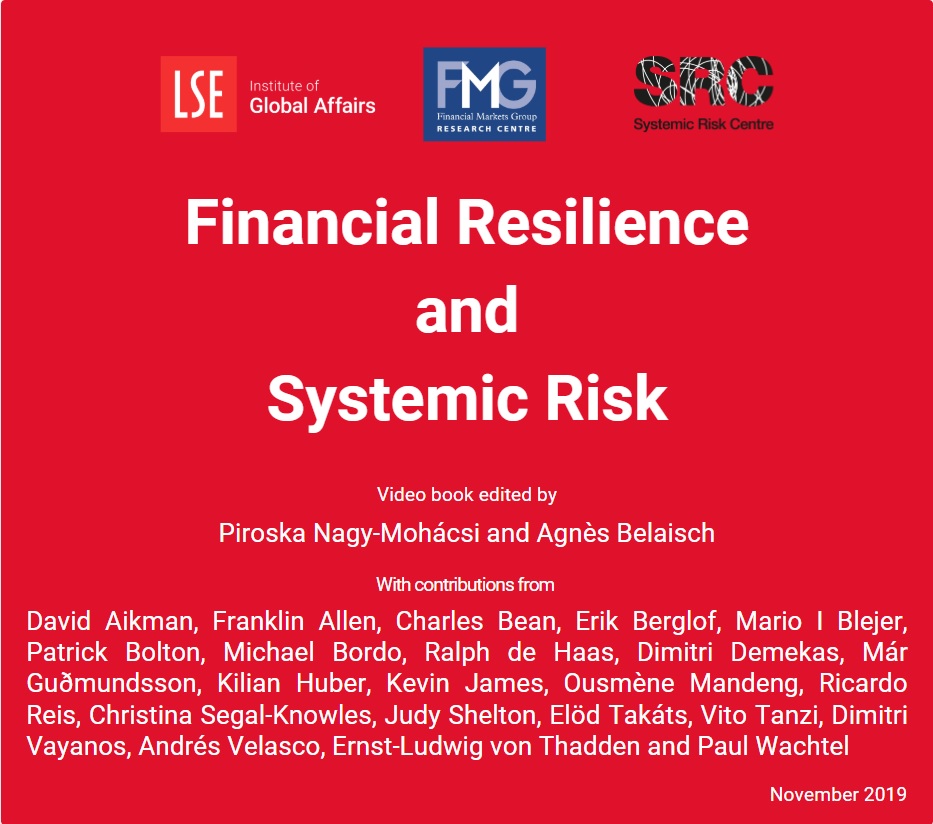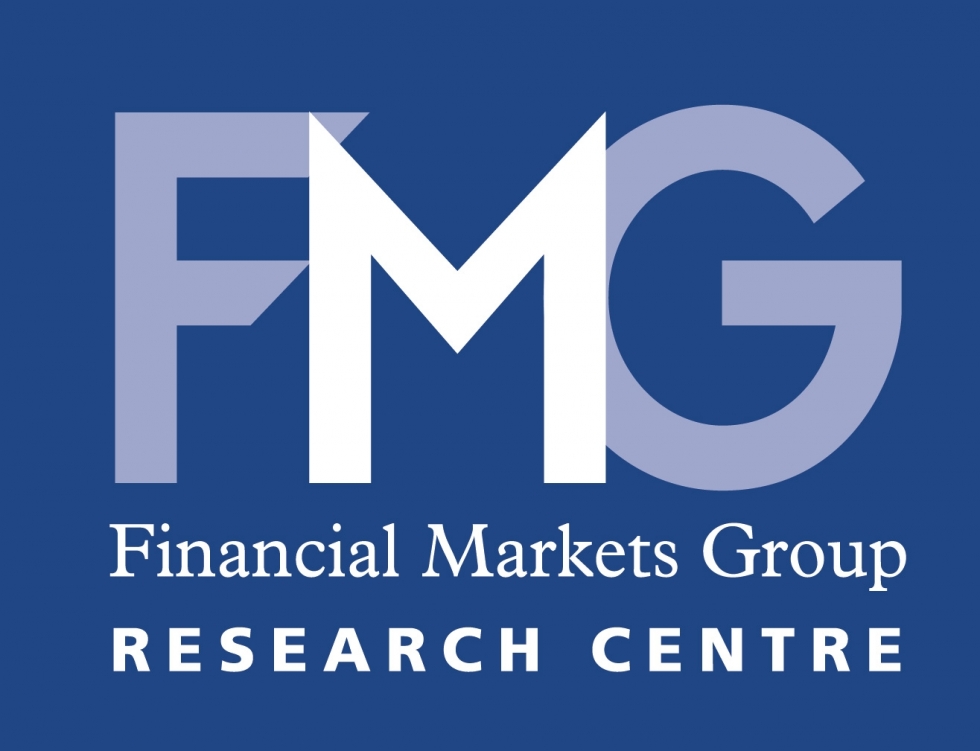Time: All day Venue: Fawcett House, Room 9.05, LSE (map)
Speakers: David Aikman (Bank of England), Franklin Allen (Imperial College), Charlie Bean (LSE), Marek Belka (IGA, LSE), Erik Berglöf (IGA, LSE), Mario Blejer (IRSA, IGA, LSE), Patrick Bolton (Columbia Business School), Ralph de Haas (EBRD), Dimitri Demekas (Bank of England, IGA, LSE), Ben Dyson (Bank of England), Már Guðmundsson (Central Bank of Iceland), Kilian Huber (University of Chicago), Kevin James (FCA, SRC, LSE), Ousmène Mandeng (Accenture, IGA, LSE), Reza Moghadam (Morgan Stanley), Piroska Nagy-Mohácsi (LSE), Ricardo Reis (LSE), Hélène Rey (London Business School), Christina Segal-Knowles (Bank of England, IGA, LSE), Judy Shelton (EBRD), Vania Stavrakeva (London Business School), Elöd Takáts (BIS), Dimitri Vayanos (FMG, LSE), Andres Velasco (LSE), Édouard Vidon (Bank of France), Ernst-Ludwig von Thadden (Mannheim University), Paul Wachtel (NYU Stern Business School)
Materials available: V-book

Building materially resilient financial systems has been a central objective of policy makers following the devastating global financial crisis (GFC) of 2008-2009. A lot has happened during the past decade in creating a more robust financial regulatory framework, and some now even call for reversing what they see the post GFC “regulatory grip”. Meanwhile, as necessary as it may have been, the crisis-prompted monetary easing has swelled global liquidity, increased concentration in the industry, exacerbated exchange rate volatility (“currency wars” and now their reversal) and created asset price inflation. Central banks’ pre-crisis accountability arrangements are called into question. Moreover, the previously assumed high economic benefits of globalisation with freely flowing international capital flows may have also been overstated and/or its true costs unrecognised, and it is unclear whether current policy tools to deal with them either at the global or national level are adequate even for countries with sound economic fundamentals. Yet policy makers have also learnt from the management of the crisis and discovered some new tools in the process. Private sector innovations from digitalisation and artificial intelligence are now creating new opportunities – not only risks — that monetary authorities could harness, perhaps in the form of fintech public-private partnerships, to manage systemic risk in the future.
The fundamental questions remain whether systemic risk is actually lower or not than before the GFC, and whether economies are better equipped both technically and politically to deal with this risk. Has the system as a whole learnt to be more adaptive to shocks? Has crisis management reduced or increased moral hazard in the system? Is financial resilience is materially better than a decade ago?
This conference aims to investigate these questions under three main themes:
Post-crisis regulatory reform
Global financial system resilience
Central banking and institutional resilience.
This two-day conference brings together researchers and policymakers and is by invitation only. For further details please contact the Institute of Global Affairs at: iga@lse.ac.uk.
The programme can be viewed here.
Slides are available for the following talks.
David Aikman (Bank of England) - slides
Franklin Allen (Imperial College) - slides
Charlie Bean (LSE)
Marek Belka (IGA, LSE)
Erik Berglöf (IGA, LSE) - slides
Mario Blejer (IRSA, IGA, LSE)
Patrick Bolton (Columbia Business School)
Ralph de Haas (EBRD) - slides
Dimitri Demekas (Bank of England, IGA, LSE) - slides
Ben Dyson (Bank of England)
Mar Gudmundsson (Central Bank of Iceland)
Kilian Huber (University of Chicago)
Kevin James (FCA, SRC, LSE) - slides
Ousmène Mandeng (Accenture, IGA, LSE) - slides
Reza Moghadam (Morgan Stanley)
Piroska Nagy-Mohácsi (LSE)
Ricardo Reis (LSE) - slides
Hélène Rey (London Business School)
Christina Segal-Knowles (Bank of England, IGA, LSE)
Judy Shelton (EBRD)
Vania Stavrakeva (London Business School)
Elöd Takáts (BIS) - slides
Dimitri Vayanos (FMG, LSE) - slides
Andres Velasco (LSE) - slides
Édouard Vidon (Bank of France)
Ernst-Ludwig von Thadden (Mannheim University) - slides
Paul Wachtel (NYU Stern Business School) - slides
A series of three public lectures are part of the conference and are open to the public. Please note that the lectures are held at different LSE venues than the conference.
Wednesday, January 30th 2019 6:30pm to 8:00pm | Prof. Michael Bordo (Rutgers University) | "An Historical Perspective on the Quest for Financial Stability and the Monetary Policy Regime" | Wolfson Theatre, New Academic Building
Thursday, January 31st 2019 2:10pm to 3:00pm | Hon. Jacques de Larosière (Adviser to the President of BNP Paribas and former Managing Director of the IMF) | "The Demise of the Bretton-Woods System Explains Much of Our Current Financial Vulnerabilities" | Sheikh Zayed Theatre, New Academic Building
Thursday, January 31st 2019 6:30pm to 8:00pm | Dr. Vito Tanzi (former Director of the IMF and Deputy Minister of Finance of Italy) | "Fiscal Resilience: Termites of the State" | Wolfson Theatre, New Academic Building
The conference is co-hosted with the Institute of Global Affairs (IGA).

